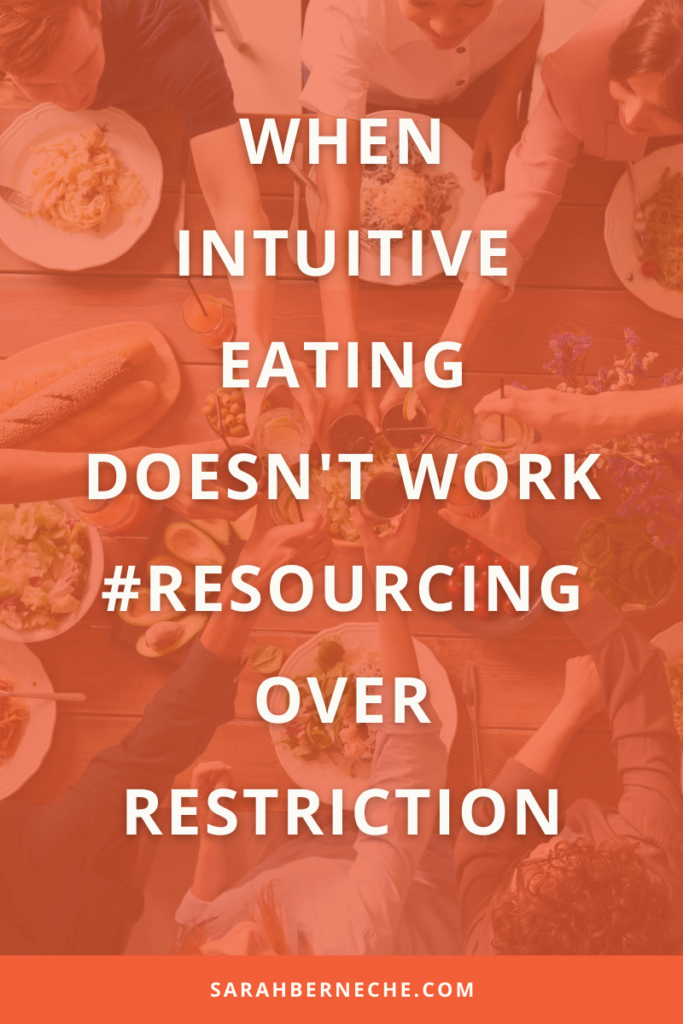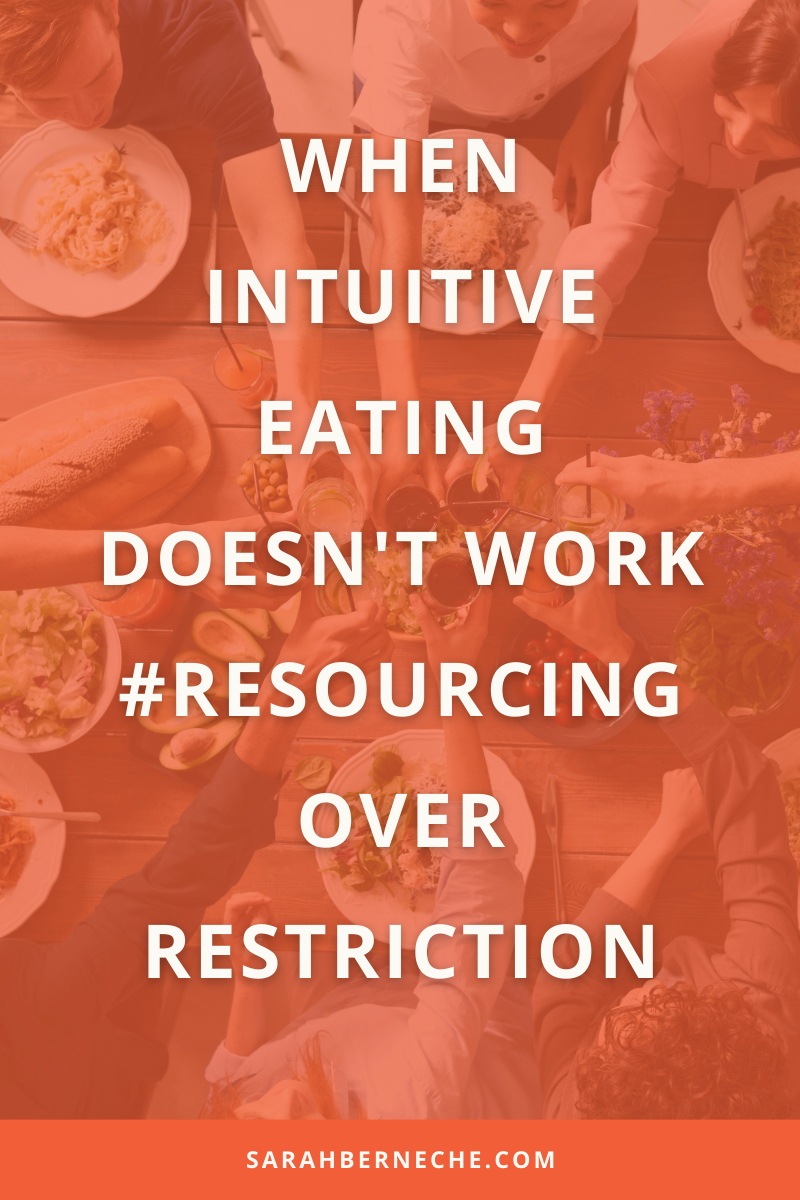You’ve read the Intuitive Eating book or listened to the audio version. You’ve spent countless hours listening to podcasts and scanning captions on the IG.
You have all of the information you could ever need, but…
It still feels like Intuitive Eating isn’t “working.”
Here’s what I know to be true about recovering from food and body image concerns: you can do all of the cognitive work in the world, including talk therapy and Intuitive Eating coaching, and still find yourself in recovery limbo.

In my professional opinion, there’s a very small segment of people who can implement the principles with relative ease. Emphasis on very.
If you’re like those I often speak with, you struggle with:
- Acknowledging that you have (food) needs
- Welcoming your (food) needs
- Meeting your (food) needs
- Surfacing your hunger cues
- Stopping at comfortable fullness, most of the time
- Identifying what you’re feeling
- Self-harming with exercise or experiencing no motivation to move
- Being in your body
- Practicing self-care (and having it feel like real care)
- Staying present with food
- Feeling safe with food
- Having a choice with emotional eating
Even though attempts at weight control and clinical eating disorders all live inside the body, traditional approaches to recovery almost always leave the body out.
Resourcing Over Restriction
So what’s missing?
Somatic therapy and somatic interventions, friends. For those who don’t know, “soma” translates into “relating to the body.” Unlike cognitive approaches (e.g., Cognitive Behavioural Therapy, Dialectical Behavioural Therapy, Acceptance and Commitment Therapy, and so on), which take a “top-down” approach and engage the body very minimally (if at all), somatic therapy works from the “bottom up.”
What does that mean? Somatic work engages the mind-body connection. It helps us to see how old ways of surviving in the world are running interference on our attempts at peaceful eating and body acceptance. (Don’t ask me where that football analogy came from.)
When we leave out the body, we risk finding ourselves in a kind of purgatory state between “Hell” (e.g. endless attempts at weight loss/dieting, eating disorder, disordered eating) and “Heaven” (e.g. embodied eating, Intuitive Eating, regular eating, call it whatever you want — it’s your Heaven).
Leaving Limbo
Like a growing number of others, I don’t believe we change when we “know better.” I believe we change when we feel safe to change. As Kathy L. Kain and Stephen J. Terrell share in Nurturing Resilience, conscious thought can help us to evaluate our external environment.
I can intellectually know that an activated fire alarm signals danger.
However, whether you feel safe or not in a given situation — e.g. while eating birthday cake — will be highly influenced by what’s going on inside of you. Even though non-diet education is helpful, most people I know can’t reason their way out of food fears.
Intellectually knowing the cake is safe to eat and feeling it on the inside are two different things.
This is why I incorporate both top-down and bottom-up strategies in my approach.
In essence, it looks like moving toward resourcing rather than restriction — helping ourselves feel safe without micromanaging food or pursuing weight control. Over the coming months, I’m super pumped to be speaking on the following:
- Why Intuitive Eating may not “work” as written
- Why body positivity may not be enough — and what traditional body image coaching leaves out
- How somatic work can offer what’s missing in our recovery journeys
- Mistakes and misconceptions about all things diet/disordered eating recovery, Intuitive Eating, body image, and joyful movement
Want out of the diet cycle for good? Here’s how we can work together:
- Work with me 1:1. Together we’ll review your current relationship with food and your body, discuss your goals for our time together, and help you to feel safe with food and your body without #dietmath.
- New to Intuitive Eating and a non-diet approach? My book, Enjoy It All: Improve Your Health and Happiness with Intuitive Eating, offers a guide to finding lasting peace with food.

[…] understand the challenges of navigating food restriction as an Intuitive Eater; after all, I’ve been living with Celiac’s Disease (I cannot tolerate […]
[…] I want to address 10 reasons you may be struggling with intuitive eating or felt at some point or another that it wasn’t for […]